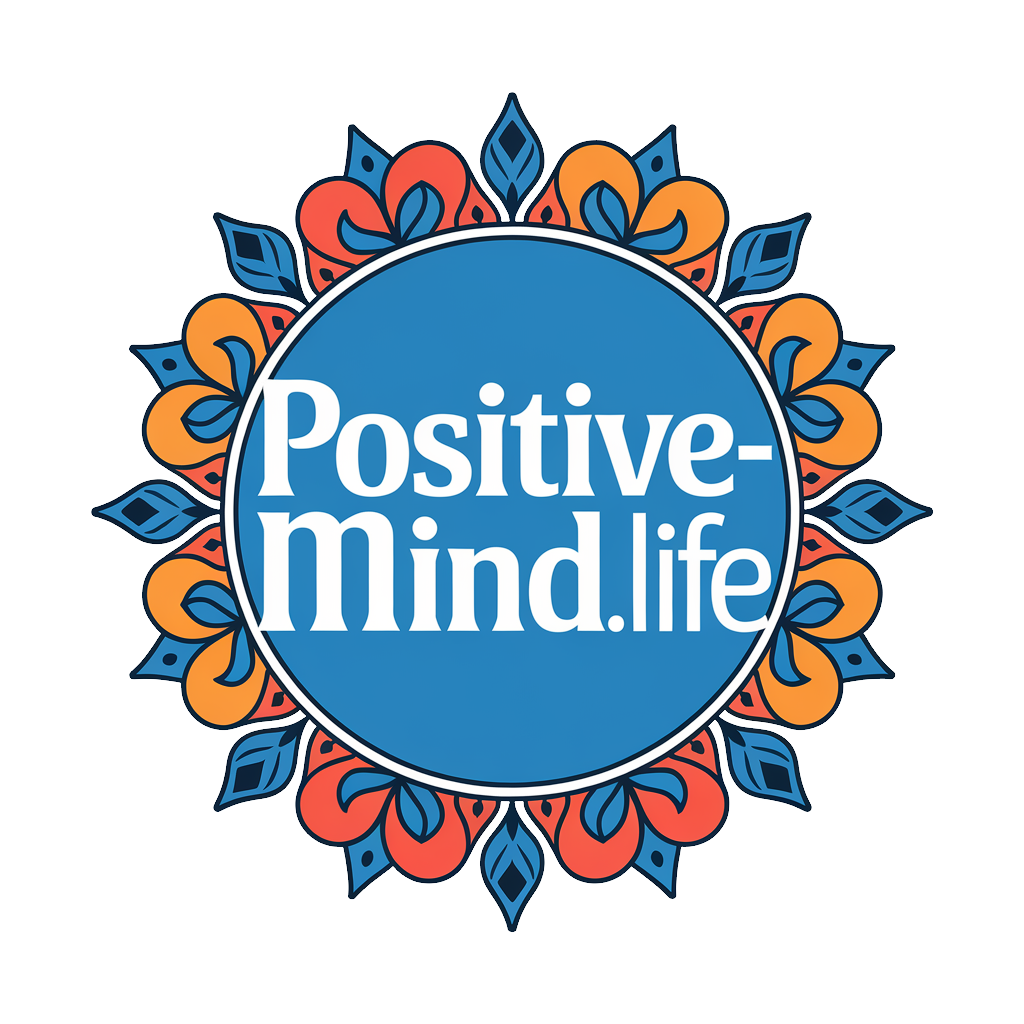The Surprising Link Between Gratitude and Happiness!
Gratitude isn’t merely a polite gesture; it’s a science-backed way to elevate your happiness. When you practice gratitude, you shift your focus from what you lack to recognizing the abundance around you. This positive reframing activates your brain’s reward system, releasing feel-good chemicals like dopamine and serotonin, which helps reduce stress and anxiety. Regularly expressing gratitude enhances your emotional resilience and strengthens relationships, making you feel more connected. By cultivating this mindset, you can create lasting changes in your emotional well-being. There’s so much more to explore about how gratitude can transform your life for the better.
Key Takeaways
- Practicing gratitude rewires the brain to recognize positivity, enhancing overall happiness and emotional well-being.
- Expressing gratitude releases dopamine and serotonin, which directly improve mood and reduce stress levels.
- Regular gratitude practice fosters emotional resilience, helping individuals cope better with challenges and anxiety.
- Acknowledging the positives in life leads to deeper, healthier relationships, increasing overall life satisfaction.
- Cultivating gratitude consistently results in long-term emotional health changes, contributing to lasting happiness.
Understanding Gratitude
Gratitude isn’t just a polite response; it’s a powerful emotion that can significantly impact your well-being. Embracing a gratitude mindset allows you to shift your focus from what you lack to what you possess. This shift can enhance your emotional resilience and overall life satisfaction. When you actively cultivate gratitude, you’re not just acknowledging the good in your life; you’re rewiring your brain to recognize positivity more often.
Research shows that individuals who practice gratitude experience numerous benefits. They report lower levels of stress and depression, higher levels of happiness, and improved relationships. By regularly reflecting on what you’re thankful for, you activate your brain’s reward system, promoting feelings of joy and contentment. You’ll find that gratitude fosters a sense of belonging and connection, which are crucial for emotional health.
Moreover, integrating gratitude into your daily routine can amplify these benefits. Whether you’re journaling about your blessings or expressing appreciation to others, these simple actions can create profound shifts in your emotional landscape. Ultimately, understanding gratitude is about recognizing its transformative power, enabling you to unlock deeper happiness and fulfillment in your life.
The Science Behind Gratitude
A wealth of scientific research underscores the profound effects of gratitude on mental health and well-being. Neuroscience gratitude studies reveal that practicing gratitude can alter brain function, particularly in regions related to emotion regulation and reward processing. When you express gratitude, your brain releases neurotransmitters like dopamine and serotonin, which enhance mood and promote feelings of happiness.
Gratitude psychology also plays a significant role in shaping your worldview. Research shows that individuals who actively cultivate gratitude tend to exhibit lower levels of stress and anxiety. This emotional resilience stems from your ability to focus on positive experiences rather than dwelling on negativity. In essence, gratitude acts as a cognitive reframing tool, allowing you to perceive challenges as opportunities for growth.
Moreover, gratitude enhances social bonds. When you acknowledge others’ contributions, it fosters a sense of connection and strengthens relationships. This interconnectedness not only boosts your emotional well-being but also creates a supportive network that reinforces your gratitude practice.
Benefits of Practicing Gratitude
Practicing gratitude offers a multitude of benefits that extend beyond individual happiness. When you engage in gratitude exercises, such as journaling or reflection, you’re not just acknowledging positive aspects of your life; you’re actively training your brain to adopt a gratitude mindset. Research shows that this shift can lead to improved emotional resilience and stronger interpersonal relationships.
By regularly practicing gratitude, you’re likely to experience enhanced well-being. Studies indicate that individuals who focus on gratitude report lower levels of stress and anxiety. This is because gratitude helps you reframe negative experiences, allowing you to view challenges through a more positive lens.
Moreover, cultivating a gratitude mindset can improve your overall physical health. People who practice gratitude often engage in healthier behaviors, like exercise and better nutrition, which contributes to their overall vitality.
Lastly, gratitude exercises can foster greater empathy and reduce aggressive behavior. When you appreciate what you have, you’re less likely to feel envious or resentful towards others. Ultimately, practicing gratitude equips you with tools to navigate life’s complexities more effectively, leading to a more fulfilling and connected existence.
Gratitude and Emotional Well-Being
When you take the time to acknowledge what you’re thankful for, you create a powerful impact on your emotional well-being. Cultivating a gratitude mindset isn’t just about feeling good; it’s a strategic approach to enhancing your emotional resilience. Research indicates that individuals who consistently practice gratitude report lower levels of stress and anxiety. This shift in focus allows you to reframe negative experiences, fostering a more positive outlook on life.
A gratitude mindset encourages you to recognize and appreciate the positive aspects of your life, even amid challenges. This practice helps you build emotional resilience, enabling you to bounce back from setbacks more effectively. When you actively engage in gratitude, you’re training your brain to seek out the good, which can transform your emotional landscape.
Furthermore, gratitude has been linked to better mental health outcomes, including decreased symptoms of depression. By nurturing a gratitude mindset, you’re not just improving your mood; you’re developing a robust framework for emotional well-being. Embracing this mindset can empower you to approach life’s difficulties with greater strength and optimism, ultimately enhancing your overall happiness.
Daily Gratitude Practices
Incorporating daily gratitude practices into your routine can significantly enhance your overall happiness. Morning gratitude journaling, expressing thanks to others, and engaging in evening reflection rituals are effective strategies backed by research. By consistently practicing these techniques, you can cultivate a more positive mindset and strengthen your emotional well-being.
Morning Gratitude Journaling
Starting your day with morning gratitude journaling can significantly enhance your overall well-being. This practice not only cultivates a positive morning mindset but also sets your daily intentions. Research shows that individuals who engage in gratitude journaling report higher levels of happiness and satisfaction. By focusing on what you’re grateful for, you shift your attention away from negativity, fostering resilience and emotional balance.
When you take just a few minutes each morning to write down three to five things you appreciate, you activate your brain’s reward system. This simple act can lead to improved mental clarity and increased motivation throughout the day. Moreover, studies indicate that regular gratitude practices can reduce symptoms of anxiety and depression, helping you approach challenges with a more constructive outlook.
To master morning gratitude journaling, aim for specificity. Instead of generic entries, reflect on particular moments or experiences that brought you joy. This depth can deepen your emotional connection to gratitude, reinforcing its benefits. Over time, you’ll likely notice a shift in your perspective, allowing gratitude to become a powerful tool for enhancing your happiness and overall quality of life.
Expressing Thanks to Others
Regularly expressing thanks to others can significantly enhance both your relationships and your emotional well-being. When you say “thank you” to someone, you not only acknowledge their efforts but also strengthen your bond with them. Research shows that gratitude can foster a sense of belonging and increase feelings of connectedness, which are critical for emotional health.
One effective way to cultivate gratitude is through writing appreciation letters. These letters allow you to articulate specific reasons for your gratitude, making the recipient feel valued. Additionally, consider participating in gratitude circles, where individuals share their expressions of thanks. This practice not only reinforces your gratitude but also inspires kindness among participants, creating a ripple effect of positivity.
Moreover, the act of expressing kindness can transform how you perceive your interactions. By consciously focusing on the positive aspects of your relationships, you shift your mindset to one of abundance rather than scarcity. This shift can lead to increased happiness and satisfaction in your life. Ultimately, by making gratitude a daily practice, you’re not just enhancing your own happiness—you’re elevating the emotional landscape of those around you.
Evening Reflection Rituals
Many people find that dedicating time each evening to reflect on their day can greatly enhance their sense of gratitude and overall well-being. Engaging in evening rituals, such as gratitude journaling, allows you to pause, assess, and appreciate the nuances of your day. Research shows that this practice can lead to improved mental health, greater happiness, and even better sleep quality.
When you take a few minutes to write down what you’re thankful for, you’re not just listing items; you’re actively rewiring your brain to focus on positive experiences. This shifts your perspective from what’s lacking to what’s abundant in your life. By reflecting on the day’s events, you cultivate a habit of appreciation that fosters resilience against negativity.
Moreover, gratitude journaling serves as a tool for self-discovery. It encourages you to explore your emotions and recognize patterns in your daily experiences. This awareness can deepen your emotional intelligence, enabling you to navigate life’s challenges with a grateful heart. Incorporating these evening rituals into your routine can transform your mindset, ultimately enhancing your overall happiness and well-being.
Gratitude in Relationships
Gratitude plays a crucial role in strengthening emotional bonds within relationships, fostering a deeper connection between you and your partner. By expressing appreciation, you enhance your communication skills, creating a more open and supportive dialogue. This mutual appreciation not only boosts individual happiness but also cultivates a healthier, more resilient relationship.
Strengthening Emotional Bonds
Cultivating gratitude within relationships can significantly enhance emotional bonds and foster deeper connections. When you express appreciation, it not only boosts your emotional intelligence but also elevates relationship satisfaction. Here’s how gratitude strengthens those bonds:
- Recognition: Acknowledging your partner’s efforts or qualities reinforces their value in your life.
- Reciprocity: Gratitude encourages a cycle of giving and receiving, creating an environment where both partners feel supported.
- Trust: Sharing gratitude fosters an atmosphere of safety, making it easier to be vulnerable and open.
- Joy: Celebrating small gestures of kindness cultivates shared happiness, deepening your emotional connection.
Research shows that couples who regularly practice gratitude experience higher levels of intimacy and satisfaction. This practice not only enhances your emotional bonds but also cultivates resilience during challenging times. By focusing on what you appreciate in your partner, you shift your perspective, allowing for a more empathetic understanding of their needs and feelings. Ultimately, gratitude acts as a catalyst for strengthening emotional ties, leading to a more fulfilling and harmonious relationship. Embrace gratitude, and watch your connections flourish.
Enhancing Communication Skills
Expressing gratitude can significantly improve your communication skills within relationships. When you regularly acknowledge what others do for you, it fosters an environment that encourages open dialogue. This practice enhances your ability to engage in active listening, allowing you to truly hear and understand your partner’s thoughts and feelings. By recognizing moments of kindness, you create a feedback loop that promotes deeper conversations.
Moreover, gratitude cultivates empathetic responses. When you express appreciation, you’re more likely to reflect on the impact of others’ actions, which helps you develop a deeper emotional connection. This connection encourages both you and your partner to share feelings more freely, leading to healthier discussions.
Research indicates that grateful individuals tend to have higher emotional intelligence. This quality enables you to navigate complex conversations with grace and sensitivity. The practice of gratitude, therefore, not only enhances your communication skills but also enriches the quality of your interactions. As you make gratitude a habit, you’ll likely find that your relationships become more fulfilling, as both you and your partner feel seen, heard, and valued. Embrace gratitude, and watch how your communication transforms.
Promoting Mutual Appreciation
Mutual appreciation forms the cornerstone of thriving relationships, fostering a sense of connection and security. When you engage in reciprocal appreciation, you cultivate an environment where both partners feel valued and understood. This dynamic enriches shared experiences and strengthens emotional bonds.
To effectively promote mutual appreciation, consider these strategies:
- Express Gratitude Regularly: Acknowledge your partner’s efforts, no matter how small. Saying “thank you” reinforces their value.
- Share Positive Memories: Reminiscing about enjoyable moments together can deepen your connection and highlight the importance of your relationship.
- Engage in Active Listening: Show genuine interest in your partner’s thoughts and feelings. This fosters respect and demonstrates that you appreciate their perspective.
- Celebrate Achievements Together: Recognizing each other’s successes, big or small, reinforces a sense of teamwork and mutual support.
Overcoming Challenges With Gratitude
Facing challenges can often feel overwhelming, yet tapping into gratitude can shift your perspective and empower you to navigate difficulties more effectively. When you cultivate a grateful mindset, you’re not just acknowledging what’s good in your life; you’re also reinforcing your ability to cope with adversity. Research shows that gratitude enhances psychological resilience, allowing you to approach problems with a more proactive attitude.
Instead of fixating on setbacks, focusing on what you appreciate helps you identify lessons and strengths within challenges. This shift fosters resilience building, enabling you to bounce back more effectively. For instance, when you view obstacles as opportunities for growth, you’re likely to feel less anxious and more capable of tackling hurdles head-on.
Moreover, gratitude encourages a sense of community and support. Recognizing the contributions of others during tough times can deepen your connections, providing a network that fortifies you. By embracing gratitude, you cultivate a powerful tool that not only mitigates stress but also enhances your overall well-being. Ultimately, when you face challenges with a grateful heart, you’re equipping yourself with the mindset necessary for enduring and thriving through life’s trials.
Long-Term Effects of Gratitude
Cultivating gratitude not only enhances your immediate emotional state but also leads to profound long-term effects on your overall well-being. Adopting a long-term mindset around gratitude can significantly amplify its impact on your life. Research shows that consistently practicing gratitude can lead to lasting changes in your mental and emotional health. Here are four key long-term effects you might experience:
- Improved Resilience: Regularly acknowledging what you’re thankful for strengthens your ability to cope with adversity.
- Enhanced Relationships: Expressing gratitude fosters deeper connections, leading to healthier and more fulfilling relationships.
- Greater Life Satisfaction: A gratitude practice can shift your focus from what you lack to appreciating what you have, increasing your overall satisfaction.
- Reduced Stress and Anxiety: Acknowledging positive aspects of life helps mitigate feelings of stress and anxiety, promoting a calmer mindset.
Frequently Asked Questions
Can Gratitude Improve Physical Health as Well?
Yes, gratitude can enhance your physical well-being. Engaging in gratitude exercises, like journaling or expressing appreciation, encourages positive emotions, reduces stress, and can lead to improved health outcomes, fostering a holistic sense of well-being.
How Does Gratitude Affect Our Brain Chemistry?
Gratitude enhances your brain chemistry by boosting neurotransmitter release, particularly serotonin and dopamine. This process fosters emotional resilience, enabling you to cope better with stress and adversity, ultimately leading to improved mental health and well-being.
Is There a Downside to Practicing Gratitude?
You might think practicing gratitude is always beneficial, but that pressure can lead to gratitude fatigue. When forced, it can feel insincere, causing stress rather than joy, undermining the very happiness you seek to cultivate.
Can Gratitude Practices Be Harmful in Certain Situations?
Yes, gratitude practices can be harmful if they lead to toxic positivity or forced gratitude. It’s crucial to acknowledge genuine feelings instead of masking them, as authenticity fosters true emotional resilience and healthier coping mechanisms.
How Does Cultural Background Influence Gratitude Expression?
You might think gratitude’s universal, but cultural norms shape how you express it. Different societies have unique gratitude rituals, influencing the depth and formality of your appreciation, thus revealing the complex tapestry of human emotion and connection.




